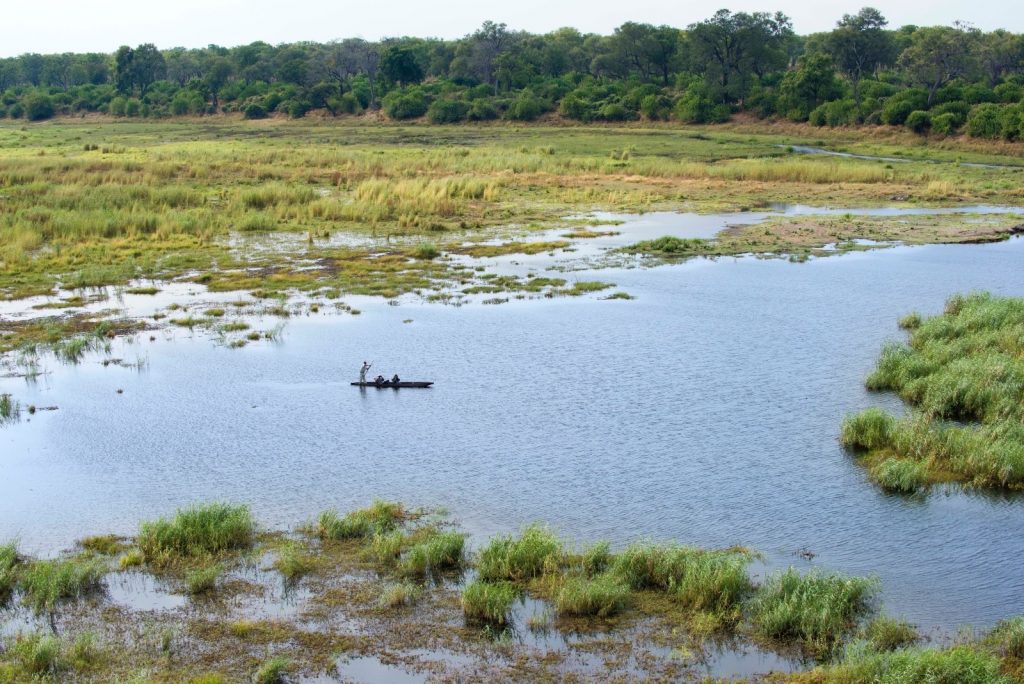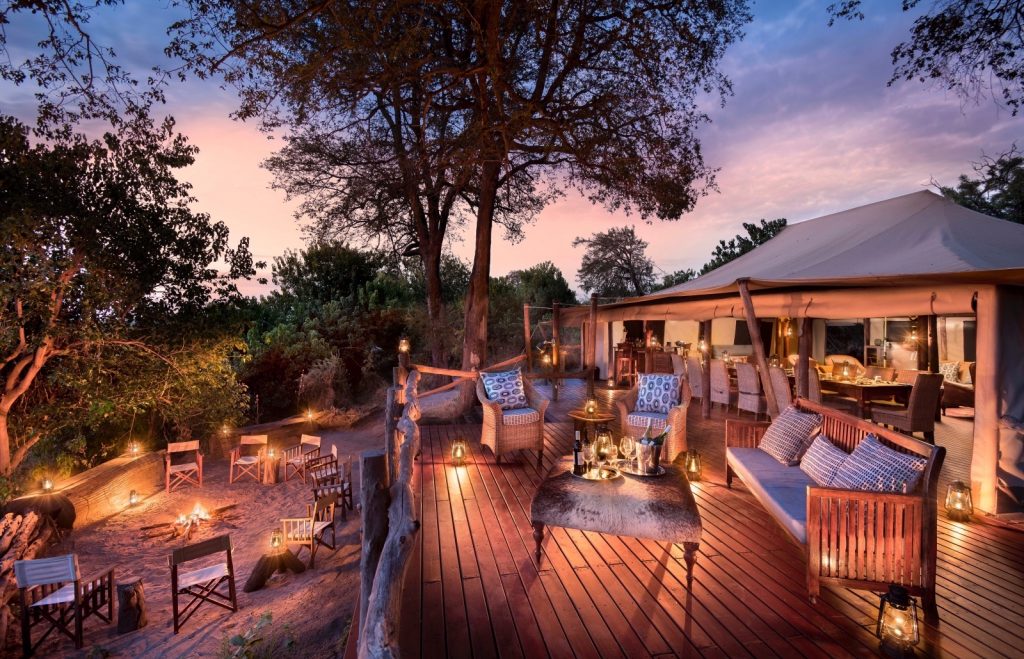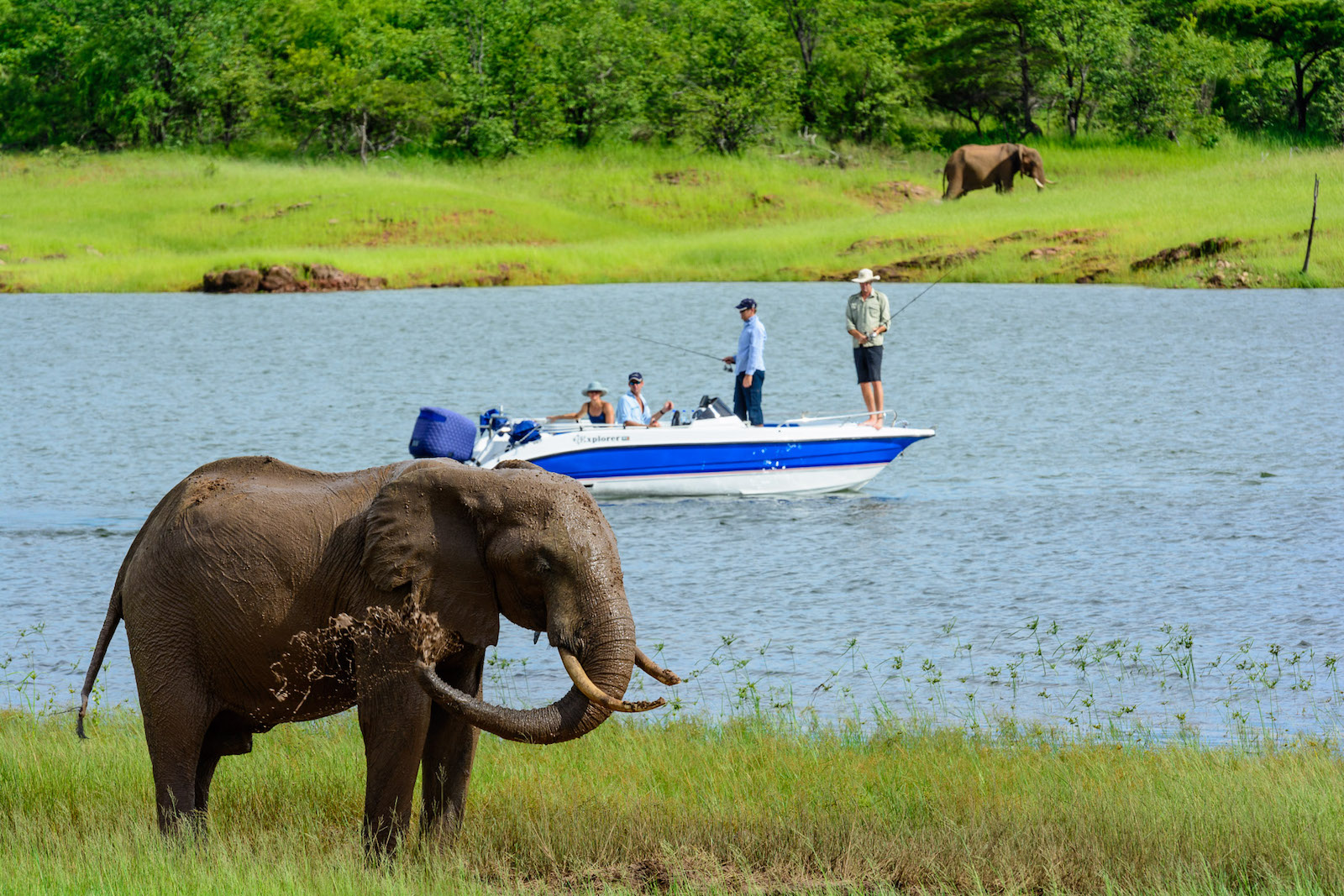Africa’s river systems feed the continent’s vast landscape and are vital to the survival of both animal and humankind. They flood and evaporate with the seasons and they carve out patterns in the sand, rock, and soil they course through. These rivers sustain life, and some of the most wildlife-dense regions in Africa are found along rivers. We’re focusing on what water-based activities bring to an African holiday, whether it be canoeing among hippo on the Zambezi, or skiing along the Bushman’s River in South Africa’s Eastern Cape while zebra and blesbok look on. The Chobe River, which divides Botswana and Namibia, is a hub of animal activity and it is known as one of the continent’s greatest safari destinations.
Here is Chobe Game Lodge offering an innovative solar-powered boat cruise on the Chobe only metres from elephants feeding on its banks, showing us not only that this can offer a fantastic game viewing and photography perspective, but also that the experience is silent and tranquil and gentle on the environment.
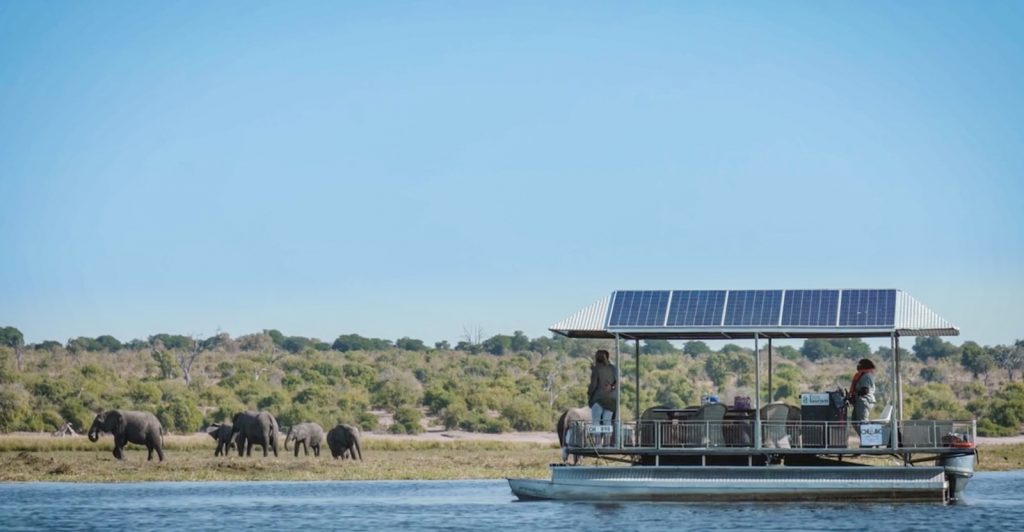
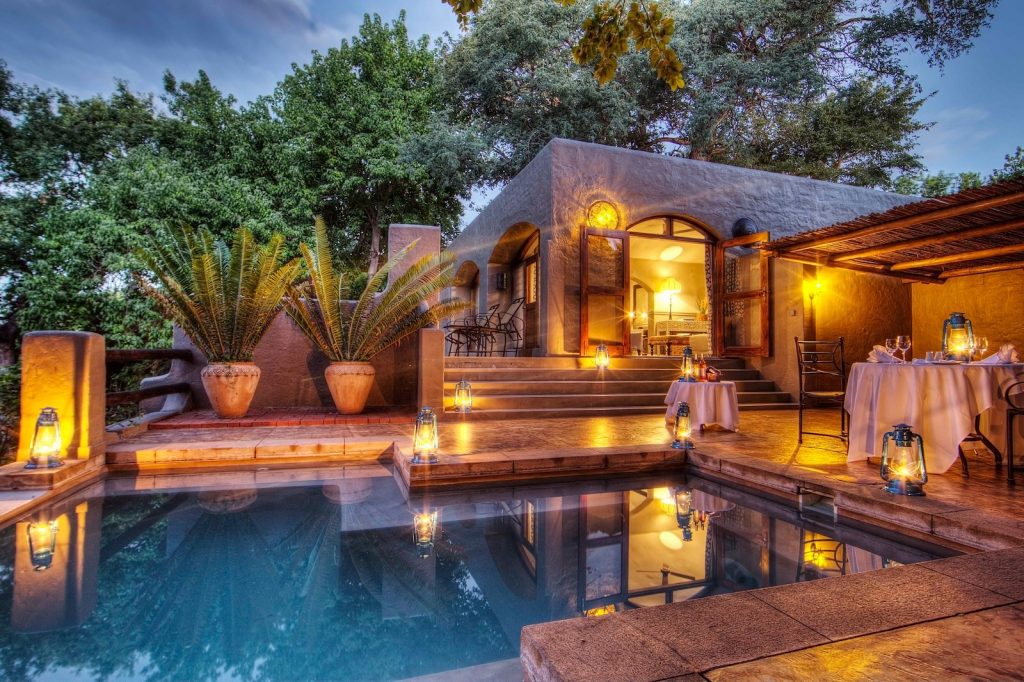
The still waters of the Okavango Delta can be deceptive, as we know that crocodiles lurk in the shallows and hippo pods submerge themselves in a famous disappearing act. There is silence on the surface, just the satisfied sigh to express a state of contentment, maybe a clink of ice in a glass, and the gentle pull of a fishing line in the water. This time of day on the Delta is picturesque, and to explore these lagoons from their surface instead of their banks introduces a new level of appreciation. Sunset boat cruises at Nxabega Okavango Tented Camp explore the waterways of a private concession, chancing an encounter with a bathing elephant, a hunting heron, or a wallowing hippo.
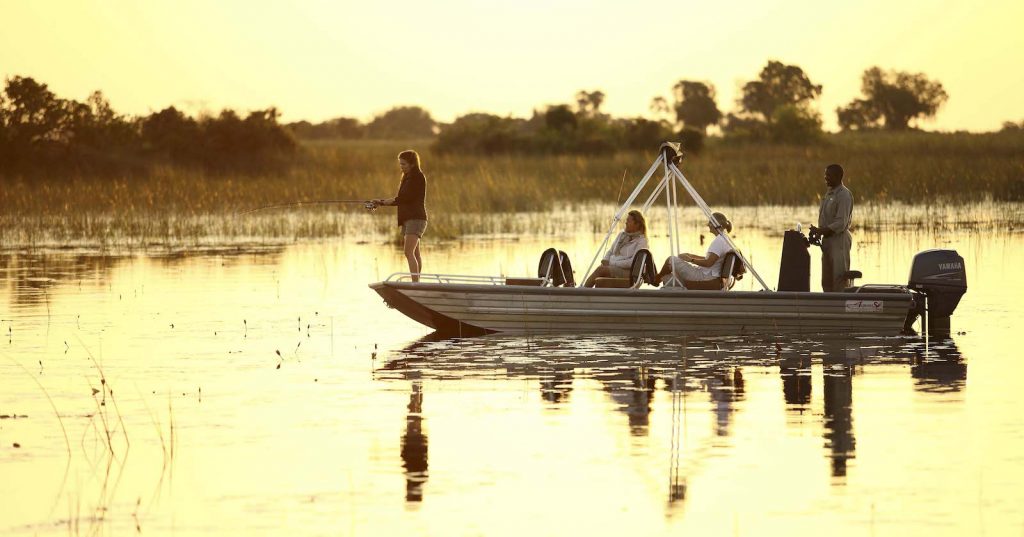
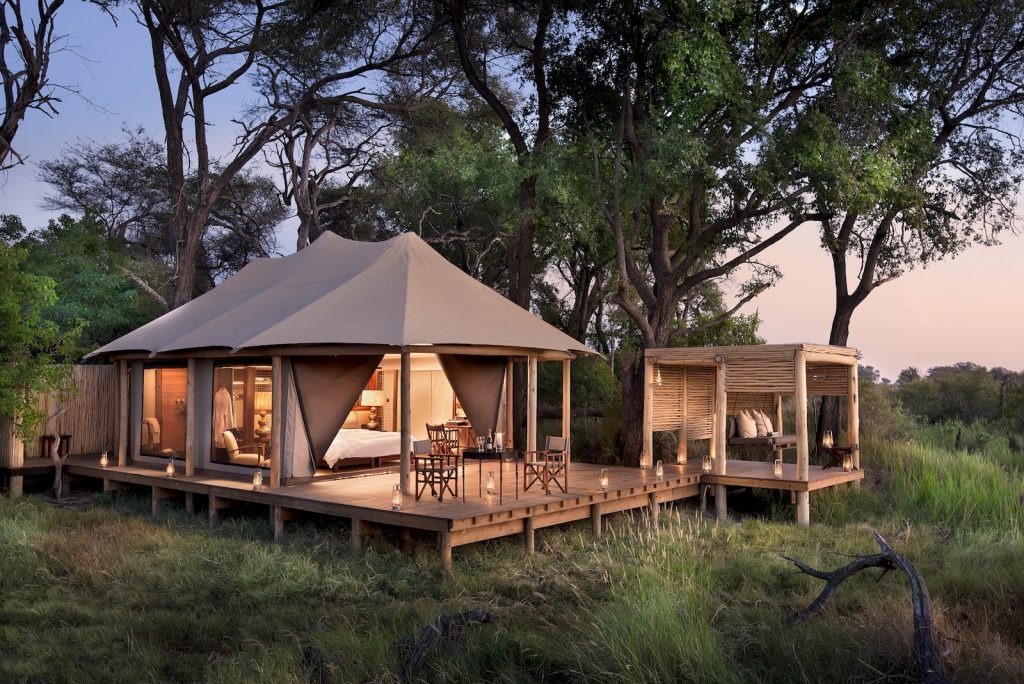
Water-based safari activities are just the way we do things in Zambia, where some of the most glorious rivers in Africa carve their way through natural areas. Rivers like the Luangwa, Kafue, and Zambezi are ideal for game viewing whether from their banks or from the channels themselves. From boating to fishing and canoeing, Zambia is the ideal territory for adventurous trips on the water, but it is also a place to float gently downstream and admire the passing scenery which is most likely to include grazing puku, waterbuck, warthog, or the giant presence of a wandering elephant. Potato Bush Camp has only 4 tents and one of the most superior spots on the Zambezi – the Chifungulu Channel – which starts only 100m from camp. Canoeing trips vary from short pre-game drive cruises to full-day excursions on the water. With some of the best guides in the business of course!
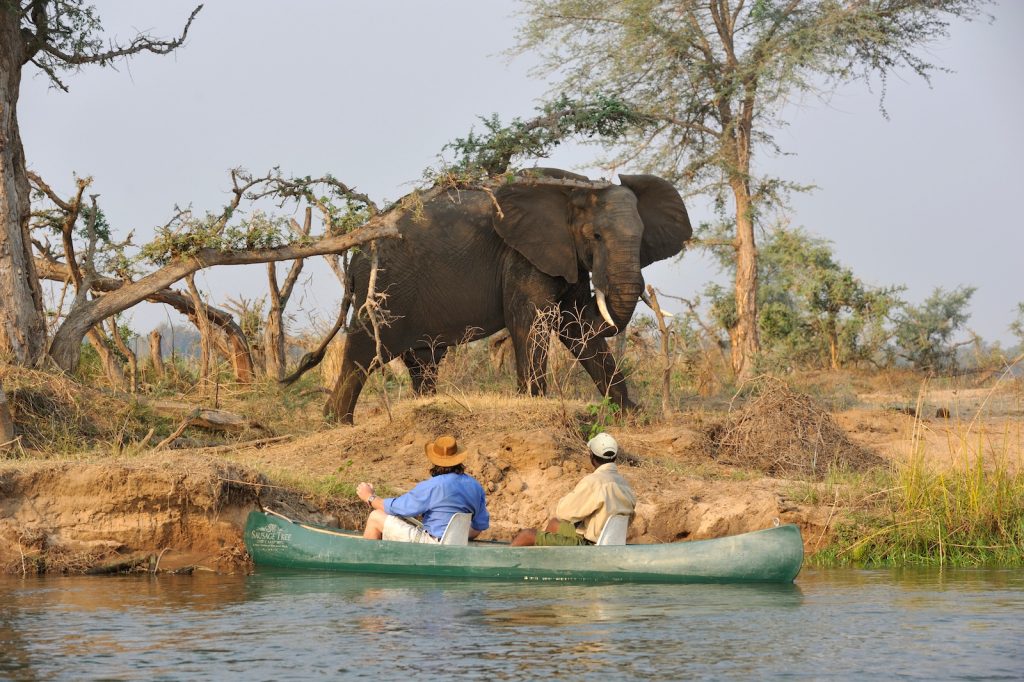

African travel does not exclude island destinations with clear, freshwater lakes and shallow reefs of flickering colour; in fact, it is entirely inclusive of this far more mellow form of a safari. While we’re on the topic of water-based activities, we are most definitely going to touch on what Lake Malawi has on offer. This inland ocean is so vast, it touches three different countries and it goes by a handful of names, but there is no denying it is one of Malawi’s greatest assets. Whether you’re gliding across the surface on a kayak or plunging into its clear depths with a scuba tank attached to your back, the Lake of Stars can’t be missed. What’s even more tempting is that this place – Mumbo Island – is 10km from the nearest road access, so the experience here is entirely centred on the water.
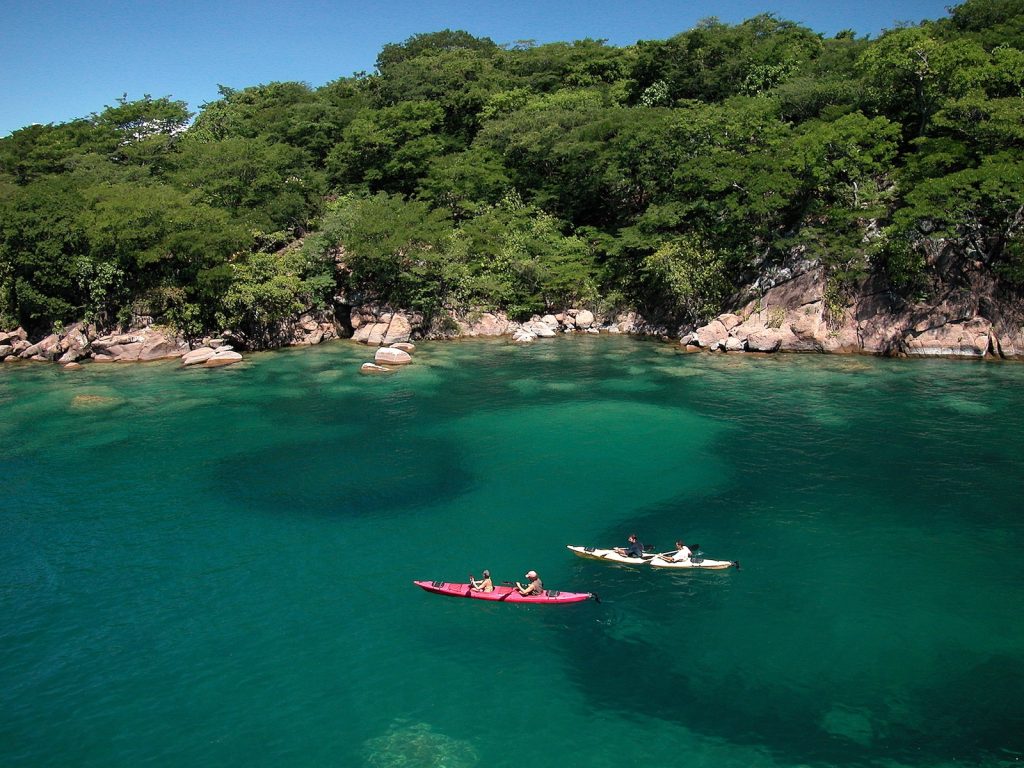
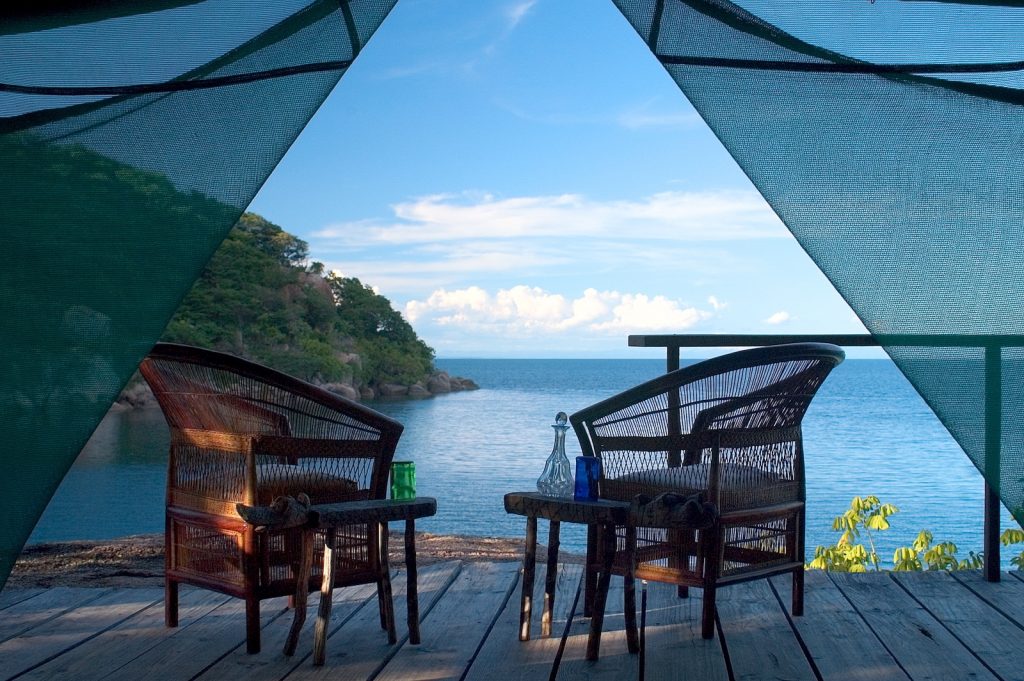
Living the dream? Some might say so. Lake Kariba has an immense history for both the people of Zimbabwe and the wildlife. This enormous lake started out as a man-made dam which broke its banks and had a tragic impact when it flooded the settlement below it. Operation Noah was the wildlife rescue plan that ran out over 5 years following the flood, and it saw the successful relocation of about 6000 animals. Today, Lake Kariba is the much-loved destination of Zimbabwe and offers some of the best water-based game viewings in Africa. This sublime setup is what a Kariba safari looks like on the Matusadona Luxury Houseboat, and it’s exactly what relaxation looks like!
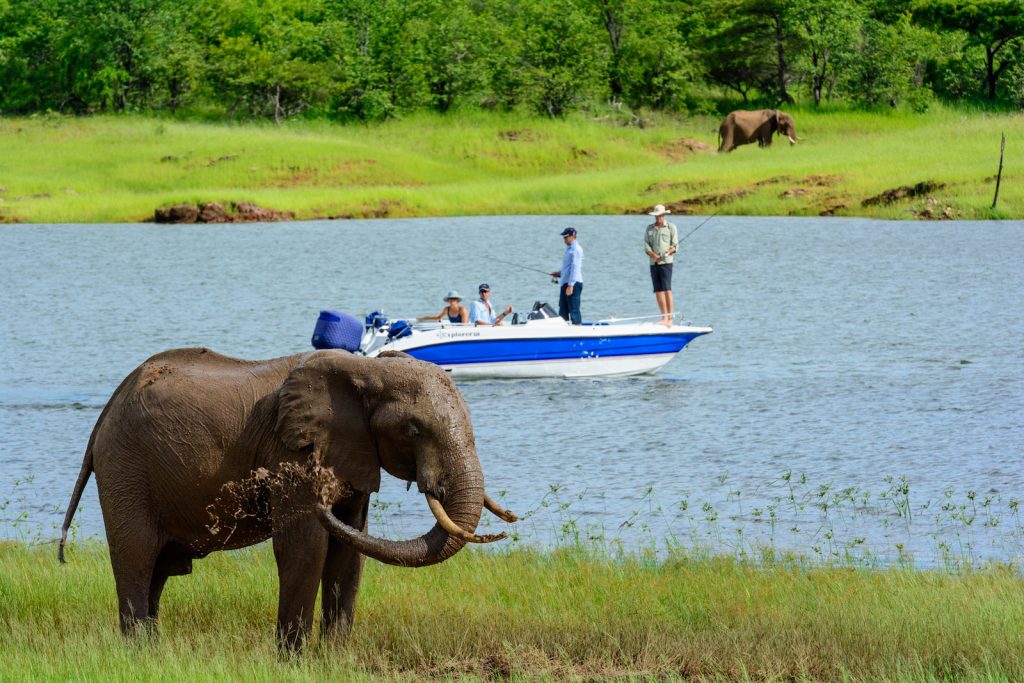
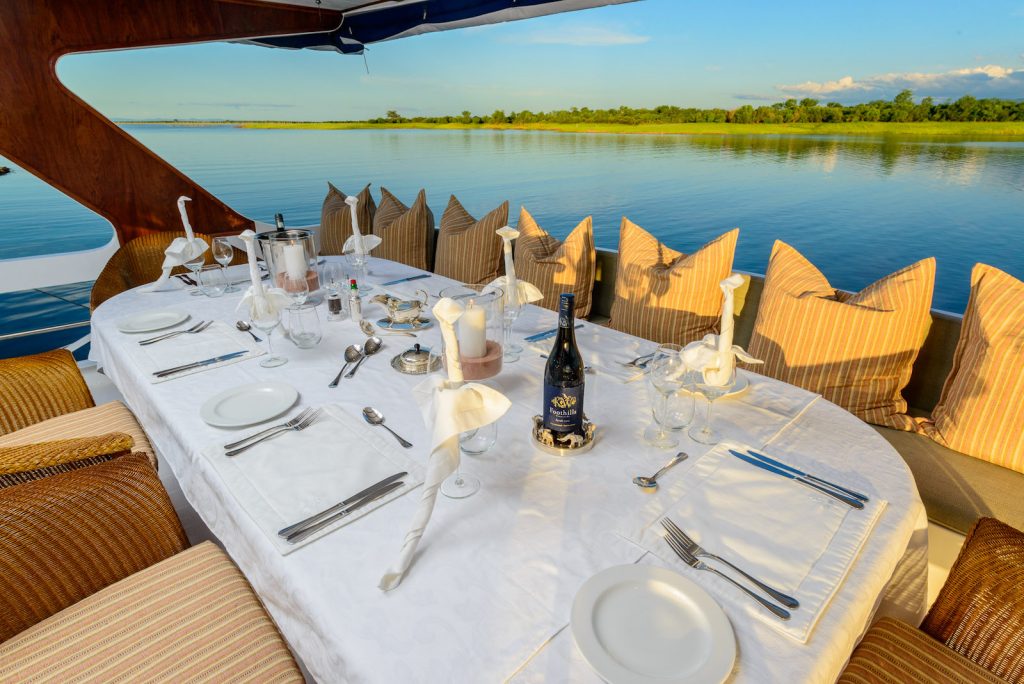
A mode of transport that has been used and relied upon for centuries among the people of the Okavango Delta in Botswana, and still used practically today, is also something visitors and safari-goers can enjoy as part of a Delta water-based activity. The mokoro is a traditional dugout canoe – historically made from the trunks of sausage trees and jackalberry trees – and it is propelled by a ‘poller’ who expertly balances at the back of the mokoro and pushes off the bottom of the channel to create forward movement. These experiences are peaceful and eye-opening as all sorts of flowers and dragonflies come into view, and the still scaly bodies of Nile crocodiles are spotted, camouflaged, on the banks, only visible at first to the trained eye of the poller. In Botswana’s winter season, the mokoro cruise is an unmissable safari experience and Kwara Camp in a private concession in the northern Delta is the ideal location for a combination of water and land-based activities. Okavango perfection.
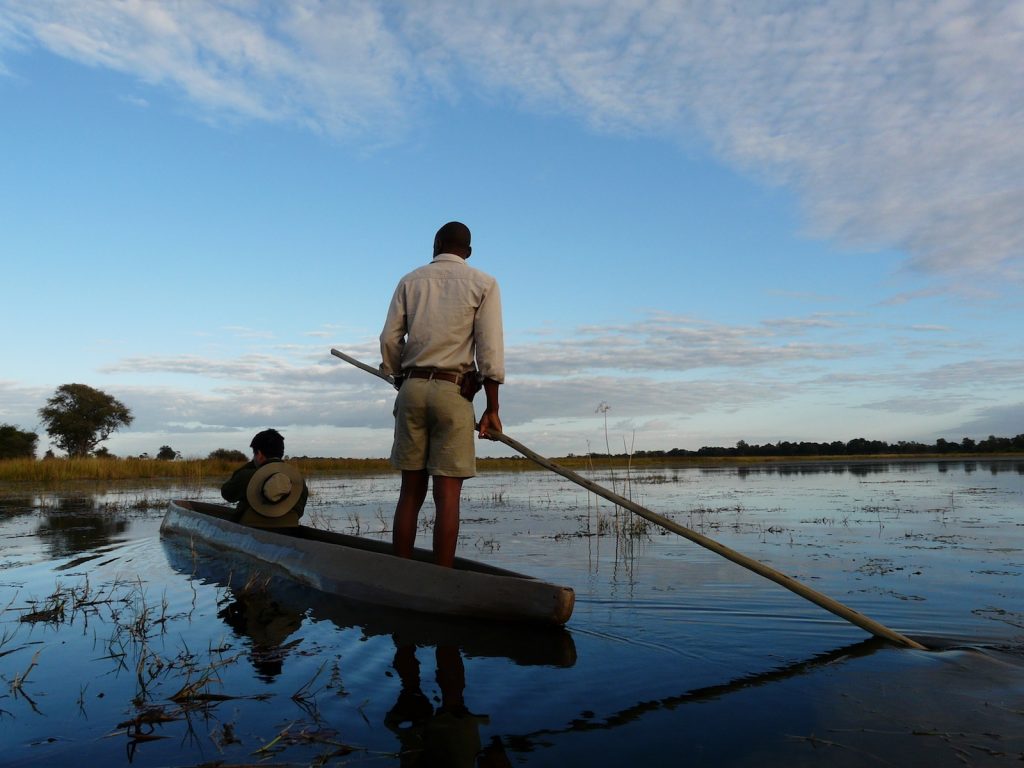
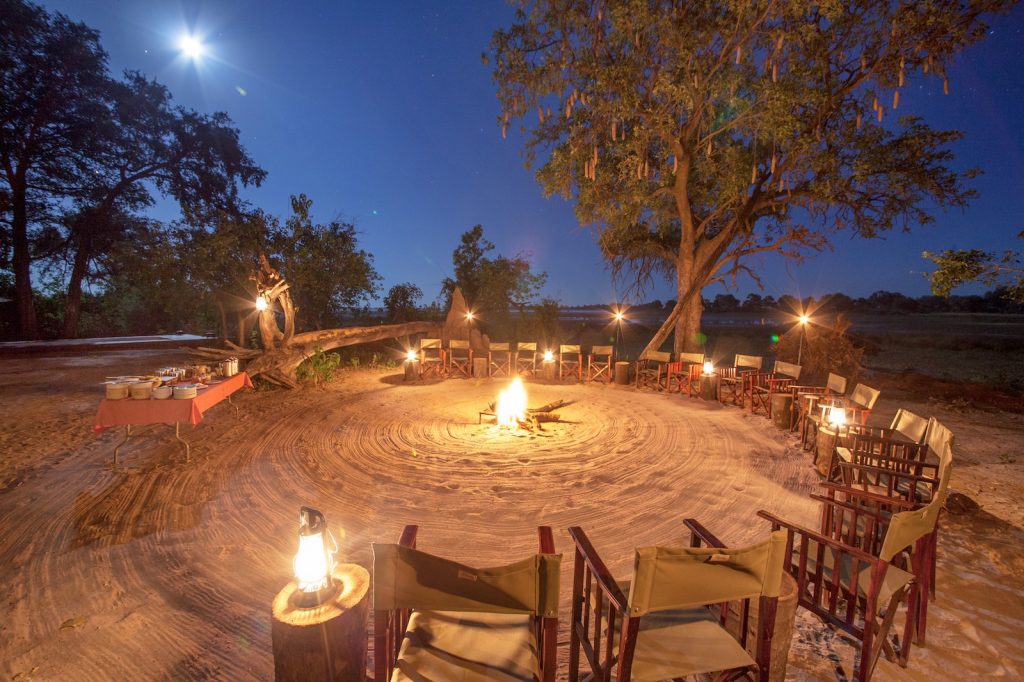
Zambia’s river-based safaris are epitomised by scenes like this: grassy floodplains and wide rivers full of grunting hippo pods. This is an exclusive region of Zambia in the Kafue National Park called Busanga Plains, which is so vastly unchartered that it is pristine in every way. Shumba Camp is remote and seasonal, only open for 4 months of the year between June and October, and water-based activities complete the experience exploring the watery mosaics. Hot air balloon excursions in this area are rated as some of the best in Africa, and we’re convinced the boating safaris are too.
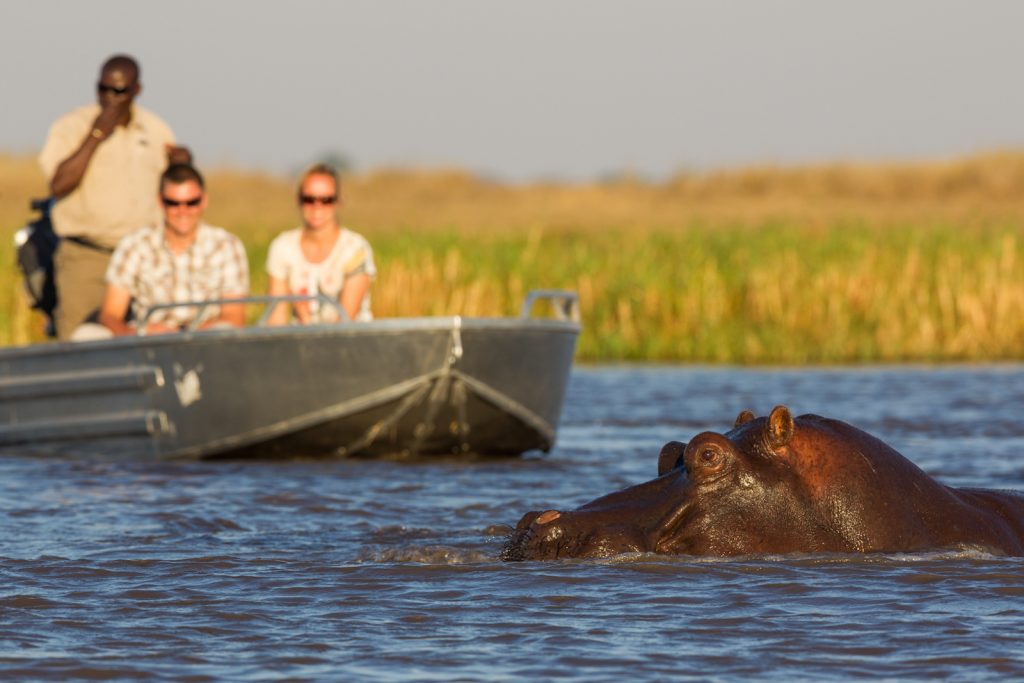
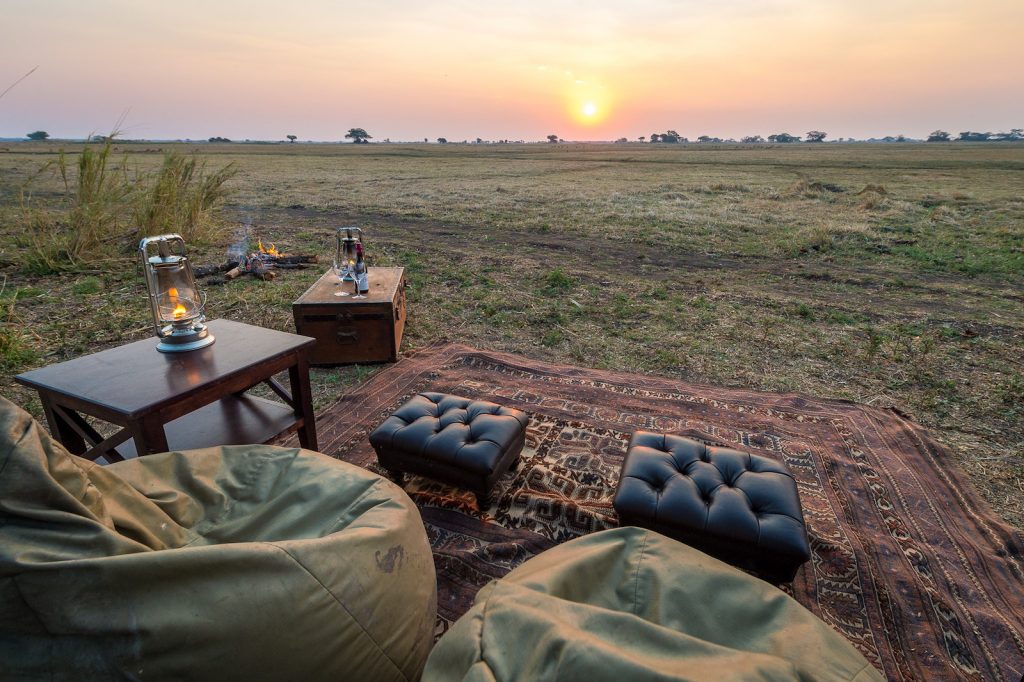
Polling across the marshy swampland that springs to life in the northern reaches of Chobe National Park, relieving the dry land and settling the dust of the Kalahari. This is the Linyanti concession, an oasis in the desert, bridging the gap between Botswana and Namibia. On land, a forest of tall riverine trees provide cool, dappled shade for the bright green foliage to thrive in, and a community of wildlife to congregate under. The swamps that flood in the northernmost territory of the country are explored by mokoro, taking guests at Linyanti Bush Camp into some of the country’s most serene and untapped wild areas. When it comes to water-based safaris, these peaceful moments in the natural abyss are moments of reflection and solitude.
